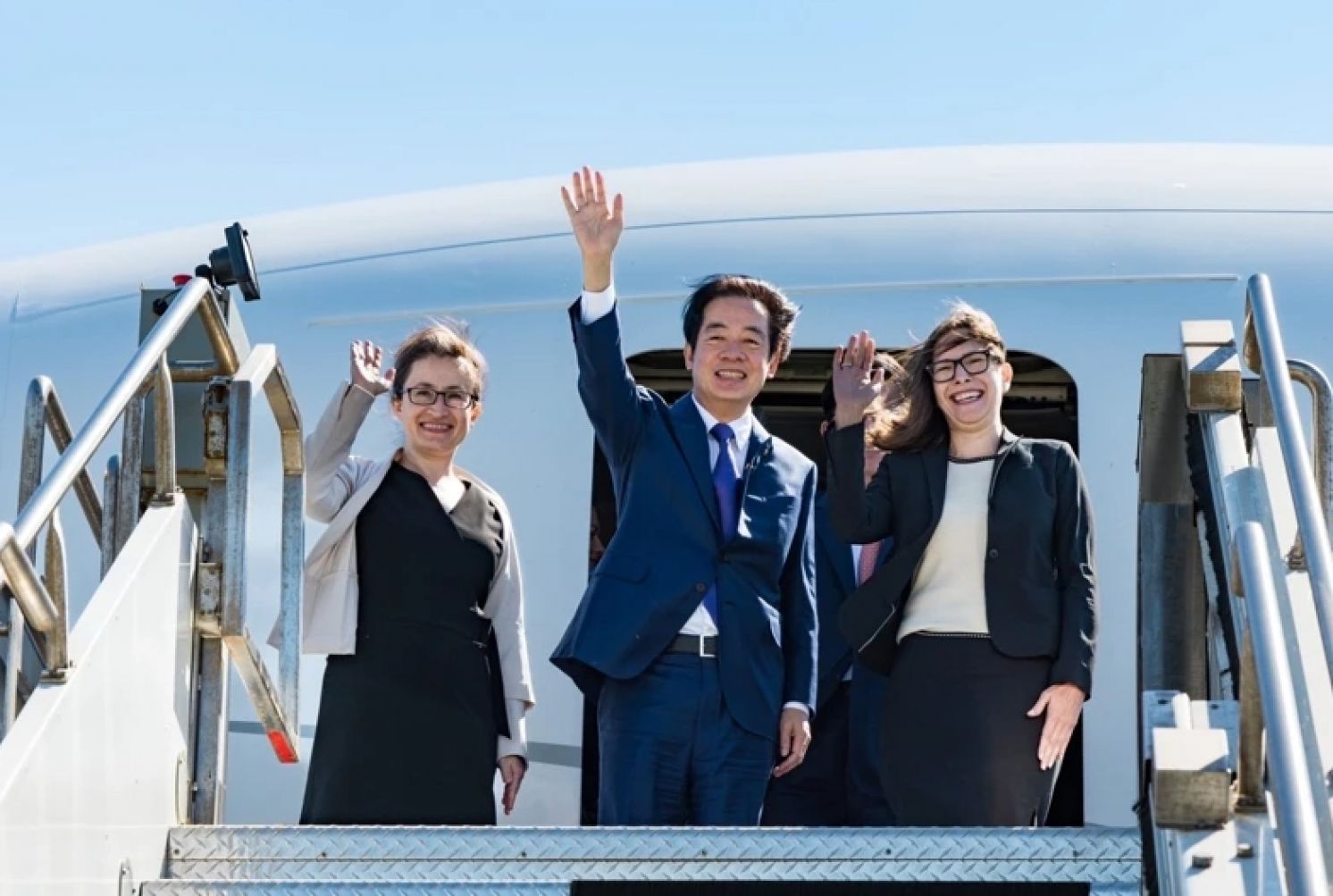
Aftereffects of Lai's U.S. Visit:Deliberately Low-Key to Make U.S. Comfortable? Beijing Calls His Path "Dangerous"
United Daily News, August 18, 2023
Vice President William Lai’s trip, on which he served as President Tsai Ing-wen’s special envoy to attend the inauguration ceremony of Paraguay’s president, came to an end. He concluded that they were “stable and responsible” on this trip and didn’t think of it as being“low-key,” including during the transit in New York and San Francisco. However, scholars believe it was discernible that Mr. Lai really attached great importance to this trip, and although he tried to act clever, they’re afraid he has only ended up with a blunder. The United States may not be relieved of his cross-strait stance, and Beijing is now more certain of his Taiwan independence position.
Chu Chao-Hsiang, professor of the Graduate Institute of Political Science, National Taiwan Normal University, said that Mr. Lai’s visit was constrained by two considerations that made it necessary to lay low. First, the Biden administration is eager to improve U.S.-China relations, and so proactively restricted his itinerary in the United States in order to minimize the possibility of accidents. Second, it was reported by the Financial Times on July 17 that Mr. Lai had said on August 10 about the goal of Taiwan’s president walking into the White House while receiving supporters in Yilan County. It aroused doubts in the United States. Thus, he himself was obliged to demonstrate his “steadiness.”
Professor Chu analyzed that his remarks before and after the trip, have been a “process of restatement” of his “pragmatic independence” position. His meticulous efforts fully exemplified that he is a seasoned and experienced political worker.
Professor Chu said that William Lai’s restatement is similar to the Democratic Progressive Party’s (DPP) Resolution on Taiwan’s Future, and Tsai Ing-wen’s Four Commitments, but he made a fatal mistake, that is, the Resolution on Taiwan’s Future was decided and adopted at the DPP National Congress in 1999, and the Four Commitments was proposed by Tsai Ing-wen during the National Day speech in 2021. The occasions and target audience were all domestic.
Even though former President Lee Teng-hui had mentioned in an exclusive interview with Deutsche Welle in 1999 that the cross-strait relationship is a “special state-to-state relationship”(commonly known as the Two-State Theory). He purposely added the word “special.” In William Lai’s interview with foreign news media, he straightforwardly expressed the cross-strait relations are “non-subordinate”; but then declared to the outside world that “the two sides of the strait are different countries” while paradoxically saying he won’t declare independence. We can’t tell which one is true.
Professor Chu states that "some things can be done but not said and some things can be said but not done." These are the sensitivities of cross-strait politics. Mr. Lai intended to follow President Tsai’s policy line, but he didn’t know where and when to speak his mind. In comparison with Lee and Tsai, William Lai’s political caliber is far behind them. But for the United States, at least Lai has publicly pledged on international occasions. In case there is a “crossing of the red line” from Mr. Lai, the AIT can poke noses in him accordingly. Beijing declared emphatically if Mr. Lai is elected, there would be no hope for cross-strait peace, and military conflict is a possibility. Professor Chu said that he doesn’t expect Beijing to make radical moves during Taiwan’s presidential election, which may give Lai a “gun” to win the election.
From his “entering the White House” comments during a Bloomberg interview released on August 14, the restatement process lasted more than a month, Professor Chu observed that most of the contents are the same. It was in the pro-DPP Set TV news interview he made it clear that he is not a golden “grandson” of politics. Instead, he emphasized that he is just a “golden political child” and a “Taiwanese Child” fighting for democracy. In Bloomberg’s exclusive interview, he emphasized that “there is no roadmap for independence” and he is aware of the “red line.”
Professor Da-Jung Li, Graduate Institute of International Affairs and Strategic Studies at Tamkang University, said that Mr. Lai’s trip to the United States was not low-key, but extremely low-key, and Mr. Lai did it on purpose.
Professor Li said that it is well known that William Lai wants to wash away the label of being a “pragmatic Taiwan independence worker.” He has been doing this since he took over the chairmanship of the DPP in January this year. In private, he said that “entering the White House” would achieve his political goal. The transit via the United States is deliberately low-key and stable. He made a high-profile public statement to the international community that there is no framework for formal independence exists, while saying that Taiwan has in fact become independent. His remarks are confusing. There is no telling which one is his real thoughts.
According to Professor Li, the United States, Beijing and the international community’s perception of Lai as a “pragmatic Taiwan independence worker” was not created in one day. It was in fact a self-attached label. Professor Li does not believe that a deliberately low-key visit and a restatement of Taiwan independence will be enough to relieve American doubts, but at least before the vote in January next year, Mr. Lai will maintain the current discourse. Will it attract the support of undecided voters? Professor Li said that he is not in a position to comment, but he only reiterated that a person’s image is not created or changed in one or two days.